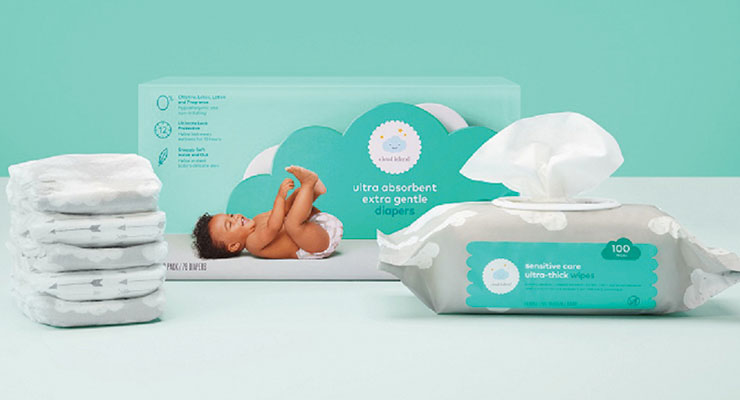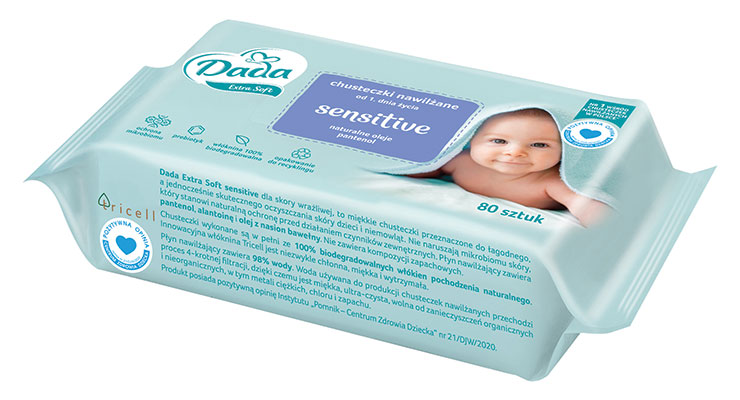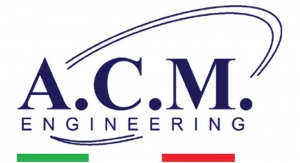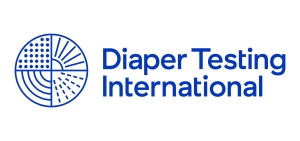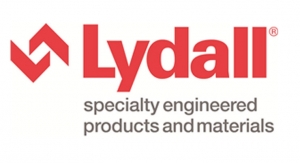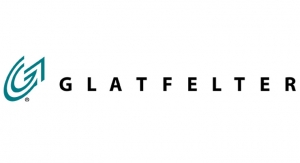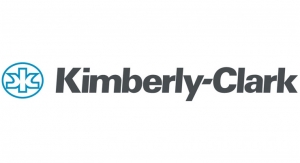Tara Olivo, Associate Editor01.06.21
A new private label has emerged within the last decade. No longer are store branded products a basic, no frills, lower-cost alternative to the national brands. With the growth of e-commerce, today’s private label product is competing on a more level playing field.
For hygiene products like baby diapers, private label manufacturers aren’t just trying to meet the fit, performance and quality of the national brands—they’re also trying to exceed these traits. At the same time, retailers and their contract manufacturing partners are taking cues from the smaller, natural-focused direct-to-consumer (DTC) brands favored by millennials and creating their own lines featuring premium and plant-based materials. All of this combined with enhanced packaging and branding has upped the profile of today’s new private label launches.
Colin Hanna, director of market research at Price Hanna Consultants, says that while the definition of private label has become more complicated in recent years, the objective is the same: increasing traffic and profits for retailers. “Retailers have gone beyond simply wanting to give customers a comparable alternative to the leading product. That was the old model,” he explains. “The new model retailers are pursuing is to create new specialty brands and products that respond to evolving specialty and niche consumer preferences. These brands are mostly imitating the success of the proliferation of relatively small direct-to-consumer brands. Today, the definition of private label must be expanded to include these retailer-owned specialty and premium brands.”
Amazon’s Earth+Eden and Target’s Cloud Island natural-focused brands are a few recent examples of this phenomenon. Launched in 2018 and manufactured by First Quality, Amazon’s Earth+Eden diapers—the e-tailer’s second private label baby care brand—are marketed as ultra-premium, high-performance diapers enhanced with natural cotton, made with sustainably sourced, absorbent plant-based materials and are printed with non-toxic water-based inks.
Meanwhile, Target, which already sold diapers under its popular Up&Up brand, launched baby diapers and wipes under the Cloud Island moniker in 2019. The wipes are ultra-thick and made with 99% water and plant-based ingredients including a coconut oil moisturizer, and the diapers offer 12-hour leak protection and feature the exclusive Tri-Wrap fold with no middle crease, which gives them a better fit than standard offerings, the company says.
In recent years e-commerce and subscription models have helped propel new DTC brands into the market, such as Honest in baby care and Cora in feminine care, but retailers are also relying on e-commerce and subscriptions as a big part of their private label growth strategies.
For instance, Amazon.com’s “Subscribe & Save” program, one of the more effective subscription models, allows consumers to receive discounts when they subscribe to receive regularly scheduled deliveries for certain products, and can also receive additional discounts when they subscribe for five or more products in one auto-delivery. Target, which had a similar subscription program, reportedly discontinued the service late last year as consumers shifted away from the subscription model to more convenient and flexible options such as same-day delivery and online pick-up.
Irene Richer, global consultant, research and laboratory lead at Diaper Testing International, says the introduction of e-commerce has been one of the biggest factors influencing the competition between private labels and national brands during the last decade. “With Honest Company paving the way back in 2011, e-commerce quickly developed into a market entry point for many private label brands,” she says. “E-commerce favored private labels by eliminating their dependency on brick-and-mortar stores and instead bypassing their distributors to sell directly to consumers.”
Before the popularization of e-commerce, Richer says private labels mainly consisted of brands made for big chains like Walmart, Safeway, HEB, etc., which were typically cheaper than the national brands and were basically clones of these in terms of specs and performance—but at a lower price point. This, she says, has also changed in the last decade with many of the private label brands being even more expensive and at times more innovative than the national brands.
“Considering that private label brands tend to be much smaller than national ones, this may help in skipping some of the bureaucracy and red tape and be able to push for innovation at a much faster rate forcing the national brands to follow in their footsteps just like Kimberly-Clark and Procter & Gamble did after Honest’s success by offering cuter prints and a similar focus on sustainability with their Huggies Special Delivery and Pampers Pure lineups,” Richer explains.
A major factor driving this new strategy for private label is the amount of consumer data generated about not just purchasing habits but also the abundance of qualitative data about consumer preferences, according to Hanna. “The impact this data has had on the private label market for hygiene is that the largest retailers with the strongest e-commerce sites have an advantage, because they can harness more consumer data to inform their designs and launches of new and more innovative specialty and premium brands. Retailers strive to increase consumer traffic by developing store brand equity for differentiated products that are exclusively available from them,” he says.
Manufacturers Step Up
On the manufacturing side, players in the private label market have been promoting new technologies, showing that they’re not just keeping up with brand names, but also introducing new features and innovations ahead of them.
“For retailers, the door has been opened to introduce innovations in their private label products for the premium and specialty market tiers,” says Pricie Hanna, managing partner of Price Hanna Consultants.
In the past, contract manufacturers tended to delay adding a new feature that was seen on the larger brands until the retailers saw evidence that the feature was a success with consumers, she explains. “They focused on their capability for rapid imitation rather than commercializing unique innovations. That was the practice for a long time but today’s competitive dynamics require retailers to win by accurately identifying new consumer preferences and rapidly delivering unique solutions, just like the major brands.”
One recent example of this is the launch of Drylock Technologies’ paper packaging for baby diapers. Announced in November, the European manufacturer of personal hygiene products said this first-of-its kind innovation will be introduced in several European retailers, and aims to meet the needs of both customers and consumers who want more environmentally friendly packaging.
Knowing that young families, new parents, and the majority of Gen Z consumers have high expectations for more environmentally friendly packaging, Drylock and its packaging partners devoted a year of intensive research and development into the Diaper Paper Bag project. This new type of packaging in the hygiene industry, which the company says is truly recyclable and biodegradable, is robust and protects the integrity of the Drylock baby care products inside.
“Every day is a battle, speed is important, which translates into the company’s aim and vision—to lead innovation in the market and to be the best and the fastest,” Drylock CEO Bart Van Malderen says. “Drylock’s innovation projects continually result in a better performance, comfort and well-being with minimal environmental impact. There is no better example of this than the new paper packaging, which maintains the integrity of the product using a fully sustainable material. Through this and other innovative developments, while helping to overcome daily needs in consumers’ lives, Drylock, together with its customers, is working towards a better tomorrow.”
Drylock worked with packaging and paper company Mondi on the paper bag project. Called the EcoWicketBag, the packaging can be placed in existing paper streams, even in countries with the strictest recycling regulations, thereby supporting the circular economy. An EcoWicketBag made out of fully compostable materials is also available.
Mondi also ensured that the EcoWicketBag fits with Drylock Technologies’ existing plant processes, meaning it is the first paper wicket bag range that can be filled and sealed on existing machines.
“We work closely with our clients using our customer-centric EcoSolutions approach to create packaging that is fit for purpose – using paper where possible, plastic when useful. With Drylock Technologies it was key to reduce the amount of plastic used, meet our customer’s sustainability targets and protect the products for consumers. By liaising closely and asking the right questions from the outset, we have been able to deliver on all of the above,” says Claudio Fedalto, chief operating officer Paper Bags, Mondi.
Meanwhile, Ontex, another European manufacturer of private label products, launched new baby diaper technology in July called SeconDry. The instant dryness system is currently being included in diapers produced for major retailers and Ontex brands across the world. Ontex and independent lab tests have shown that diapers with SeconDRY technology are as dry as the A-brand diapers tested.
A key feature of SeconDRY is a quick liquid transport for fast dryness, which is achieved thanks to a system with absorbing channels inside the core and a special absorbent layer on top. The SeconDRY system makes the topsheet of the diaper feel dry much more quickly for optimal skin protection and comfort. Ontex says it has filed several patent applications to protect the inventions that make up SeconDRY, covering 38 countries including Belgium, France, Germany, the U.K., Italy, the Netherlands, Spain and Turkey.
Innovations like SeconDRY are introduced across Ontex’s manufacturing plants on five continents. Ontex’s scale allows innovations to be rolled out fast across geographies, while taking local product innovation and preferences into account. Recent examples of innovation include Ontex’s successful introduction of more natural components in its diapers, the development of an extended baby pants range and the rollout of channel technology across its categories.
The SeconDRY upgrade has hit the shelves at many of Ontex’s retail partners and more are expected to come onstream. For Ontex’s own diaper brands, SeconDRY is already included in the brand CanBebe in Turkey since the beginning of 2020, and SeconDRY is now also offered in Moltex Pure and Nature diapers in Europe, as well as the online diaper subscription service Little Big Change in France and the Benelux.
On the wipes side, Polish company Ecowipes, which manufactures both wipes and nonwoven materials, recently launched Tricell – a nonwoven based on FSC-certified cellulose. The cellulose pulp is produced by dissolving, cleaning and bleaching fibers. The material is biodegradable - both dry nonwoven and finished wet wipes biodegraded in soil in laboratory conditions within three months. For Tricell, Ecowipes uses the same cellulose as the papermaking industry. Reduced demand for printing paper, caused by increasing digitalization of the media, significantly improved the availability of the raw material.
The goal for Ecowipes is to develop innovative technologically advanced solutions, which will provide eco-friendly alternatives for distributors and will make it possible to eliminate plastic from hygienic and cosmetic products. With Tricell, large retail chains will be able to save as much as 450 tons of plastic annually on wet wipes used for children, the company says.
Tricell is billed as an alternative to the current standard nonwoven used in wipes—viscose and polyester. Tricell is cellulose based, with an addition of viscose. “The proprietary patented technology used for the production of this nonwoven gives it the absorbency of paper and resistance of spunlace, comparable to cotton,” says Marta Jabłonska-Kubow, product marketing manager, Ecowipes.
As a nonwoven, Tricell can be used for all applications: baby wipes, cosmetic wipes and household wipes.
According to Jabłonska-Kubow, private labels have the ability to react quickly and offer a wider diversity of products. “They are faster in adaptation to new regulations (e.g. SUP directive) and market demands (eco-awareness). This is why private labels focus more on sustainable and biodegradable products, and are capable of introducing such products at a much more faster pace than brands, which with their market position, prefer to slowly evolve than to revolutionize.”
Other recent developmental efforts from Ecowipes include new flushable wipes offerings, recyclable packaging and a new cotton nonwoven production line that will start up at its sister company Hydra Beauty & Clean’s facility in France.
Expansion News
In May, Ontex announced that it would begin operations at a new personal hygiene manufacturing plant in Rockingham County, NC, in mid-2021—its first U.S. operation. Annick De Poorter, executive vice president Innovation, Sustainability and Quality at Ontex, says the facility will initially be oriented towards baby products, but the company has incorporated a flexible design in the building that will allow it to produce other absorbent hygiene products if they choose to do so. “We currently place products in the U.S. market that are manufactured throughout the Ontex network of facilities, and our new U.S. operations will serve to enhance our already-strong supply network,” she says.
The Belgium-based hygiene specialist also completed the acquisition of Albaad’s feminine hygiene production assets, also in Rockingham County.
Ontex’s agreement with Albaad covers the production lines and related equipment in Rockingham County as well as a license for all corresponding inventory and intellectual property. The production lines produce feminine hygiene pads.
The acquisition gives Ontex access to a broader range of external feminine hygiene products that are tailored to the needs of U.S. consumers, according to De Poorter.
Ontex first entered the North American market in 2016 when it bought Mexican diaper maker Grupo Mabe and expanded into Brazil with the acquisition of Hypermarcas in 2018.
And, it seems Ontex may expand its U.S. presence even further. According to a report published in the Bloomberg financial news service in November, Ontex is considering a bid for Domtar Corp.’s personal care business. The deal could value the unit, which has operations in the U.S. and Europe, at as much as $1.1 billion, according to people with knowledge of the matter.
Domtar’s personal care unit, which is generating about $110 million in annual earnings before interest, taxes, depreciation, and amortization, is also attracting private equity interest, according to the report. The unit has grown sharply in recent years thanks largely to a slate of acquisitions which include Attends adult incontinence businesses in North America and Europe, Associate Home Products, a U.S. private label diaper maker, Labatorio Indas, a Spanish hygiene specialist, and Butterfly BodyLiners, a start-up in the bowel leakage space.
For hygiene products like baby diapers, private label manufacturers aren’t just trying to meet the fit, performance and quality of the national brands—they’re also trying to exceed these traits. At the same time, retailers and their contract manufacturing partners are taking cues from the smaller, natural-focused direct-to-consumer (DTC) brands favored by millennials and creating their own lines featuring premium and plant-based materials. All of this combined with enhanced packaging and branding has upped the profile of today’s new private label launches.
Colin Hanna, director of market research at Price Hanna Consultants, says that while the definition of private label has become more complicated in recent years, the objective is the same: increasing traffic and profits for retailers. “Retailers have gone beyond simply wanting to give customers a comparable alternative to the leading product. That was the old model,” he explains. “The new model retailers are pursuing is to create new specialty brands and products that respond to evolving specialty and niche consumer preferences. These brands are mostly imitating the success of the proliferation of relatively small direct-to-consumer brands. Today, the definition of private label must be expanded to include these retailer-owned specialty and premium brands.”
Amazon’s Earth+Eden and Target’s Cloud Island natural-focused brands are a few recent examples of this phenomenon. Launched in 2018 and manufactured by First Quality, Amazon’s Earth+Eden diapers—the e-tailer’s second private label baby care brand—are marketed as ultra-premium, high-performance diapers enhanced with natural cotton, made with sustainably sourced, absorbent plant-based materials and are printed with non-toxic water-based inks.
Meanwhile, Target, which already sold diapers under its popular Up&Up brand, launched baby diapers and wipes under the Cloud Island moniker in 2019. The wipes are ultra-thick and made with 99% water and plant-based ingredients including a coconut oil moisturizer, and the diapers offer 12-hour leak protection and feature the exclusive Tri-Wrap fold with no middle crease, which gives them a better fit than standard offerings, the company says.
In recent years e-commerce and subscription models have helped propel new DTC brands into the market, such as Honest in baby care and Cora in feminine care, but retailers are also relying on e-commerce and subscriptions as a big part of their private label growth strategies.
For instance, Amazon.com’s “Subscribe & Save” program, one of the more effective subscription models, allows consumers to receive discounts when they subscribe to receive regularly scheduled deliveries for certain products, and can also receive additional discounts when they subscribe for five or more products in one auto-delivery. Target, which had a similar subscription program, reportedly discontinued the service late last year as consumers shifted away from the subscription model to more convenient and flexible options such as same-day delivery and online pick-up.
Irene Richer, global consultant, research and laboratory lead at Diaper Testing International, says the introduction of e-commerce has been one of the biggest factors influencing the competition between private labels and national brands during the last decade. “With Honest Company paving the way back in 2011, e-commerce quickly developed into a market entry point for many private label brands,” she says. “E-commerce favored private labels by eliminating their dependency on brick-and-mortar stores and instead bypassing their distributors to sell directly to consumers.”
Before the popularization of e-commerce, Richer says private labels mainly consisted of brands made for big chains like Walmart, Safeway, HEB, etc., which were typically cheaper than the national brands and were basically clones of these in terms of specs and performance—but at a lower price point. This, she says, has also changed in the last decade with many of the private label brands being even more expensive and at times more innovative than the national brands.
“Considering that private label brands tend to be much smaller than national ones, this may help in skipping some of the bureaucracy and red tape and be able to push for innovation at a much faster rate forcing the national brands to follow in their footsteps just like Kimberly-Clark and Procter & Gamble did after Honest’s success by offering cuter prints and a similar focus on sustainability with their Huggies Special Delivery and Pampers Pure lineups,” Richer explains.
A major factor driving this new strategy for private label is the amount of consumer data generated about not just purchasing habits but also the abundance of qualitative data about consumer preferences, according to Hanna. “The impact this data has had on the private label market for hygiene is that the largest retailers with the strongest e-commerce sites have an advantage, because they can harness more consumer data to inform their designs and launches of new and more innovative specialty and premium brands. Retailers strive to increase consumer traffic by developing store brand equity for differentiated products that are exclusively available from them,” he says.
Manufacturers Step Up
On the manufacturing side, players in the private label market have been promoting new technologies, showing that they’re not just keeping up with brand names, but also introducing new features and innovations ahead of them.
“For retailers, the door has been opened to introduce innovations in their private label products for the premium and specialty market tiers,” says Pricie Hanna, managing partner of Price Hanna Consultants.
In the past, contract manufacturers tended to delay adding a new feature that was seen on the larger brands until the retailers saw evidence that the feature was a success with consumers, she explains. “They focused on their capability for rapid imitation rather than commercializing unique innovations. That was the practice for a long time but today’s competitive dynamics require retailers to win by accurately identifying new consumer preferences and rapidly delivering unique solutions, just like the major brands.”
One recent example of this is the launch of Drylock Technologies’ paper packaging for baby diapers. Announced in November, the European manufacturer of personal hygiene products said this first-of-its kind innovation will be introduced in several European retailers, and aims to meet the needs of both customers and consumers who want more environmentally friendly packaging.
Knowing that young families, new parents, and the majority of Gen Z consumers have high expectations for more environmentally friendly packaging, Drylock and its packaging partners devoted a year of intensive research and development into the Diaper Paper Bag project. This new type of packaging in the hygiene industry, which the company says is truly recyclable and biodegradable, is robust and protects the integrity of the Drylock baby care products inside.
“Every day is a battle, speed is important, which translates into the company’s aim and vision—to lead innovation in the market and to be the best and the fastest,” Drylock CEO Bart Van Malderen says. “Drylock’s innovation projects continually result in a better performance, comfort and well-being with minimal environmental impact. There is no better example of this than the new paper packaging, which maintains the integrity of the product using a fully sustainable material. Through this and other innovative developments, while helping to overcome daily needs in consumers’ lives, Drylock, together with its customers, is working towards a better tomorrow.”
Drylock worked with packaging and paper company Mondi on the paper bag project. Called the EcoWicketBag, the packaging can be placed in existing paper streams, even in countries with the strictest recycling regulations, thereby supporting the circular economy. An EcoWicketBag made out of fully compostable materials is also available.
Mondi also ensured that the EcoWicketBag fits with Drylock Technologies’ existing plant processes, meaning it is the first paper wicket bag range that can be filled and sealed on existing machines.
“We work closely with our clients using our customer-centric EcoSolutions approach to create packaging that is fit for purpose – using paper where possible, plastic when useful. With Drylock Technologies it was key to reduce the amount of plastic used, meet our customer’s sustainability targets and protect the products for consumers. By liaising closely and asking the right questions from the outset, we have been able to deliver on all of the above,” says Claudio Fedalto, chief operating officer Paper Bags, Mondi.
Meanwhile, Ontex, another European manufacturer of private label products, launched new baby diaper technology in July called SeconDry. The instant dryness system is currently being included in diapers produced for major retailers and Ontex brands across the world. Ontex and independent lab tests have shown that diapers with SeconDRY technology are as dry as the A-brand diapers tested.
A key feature of SeconDRY is a quick liquid transport for fast dryness, which is achieved thanks to a system with absorbing channels inside the core and a special absorbent layer on top. The SeconDRY system makes the topsheet of the diaper feel dry much more quickly for optimal skin protection and comfort. Ontex says it has filed several patent applications to protect the inventions that make up SeconDRY, covering 38 countries including Belgium, France, Germany, the U.K., Italy, the Netherlands, Spain and Turkey.
Innovations like SeconDRY are introduced across Ontex’s manufacturing plants on five continents. Ontex’s scale allows innovations to be rolled out fast across geographies, while taking local product innovation and preferences into account. Recent examples of innovation include Ontex’s successful introduction of more natural components in its diapers, the development of an extended baby pants range and the rollout of channel technology across its categories.
The SeconDRY upgrade has hit the shelves at many of Ontex’s retail partners and more are expected to come onstream. For Ontex’s own diaper brands, SeconDRY is already included in the brand CanBebe in Turkey since the beginning of 2020, and SeconDRY is now also offered in Moltex Pure and Nature diapers in Europe, as well as the online diaper subscription service Little Big Change in France and the Benelux.
On the wipes side, Polish company Ecowipes, which manufactures both wipes and nonwoven materials, recently launched Tricell – a nonwoven based on FSC-certified cellulose. The cellulose pulp is produced by dissolving, cleaning and bleaching fibers. The material is biodegradable - both dry nonwoven and finished wet wipes biodegraded in soil in laboratory conditions within three months. For Tricell, Ecowipes uses the same cellulose as the papermaking industry. Reduced demand for printing paper, caused by increasing digitalization of the media, significantly improved the availability of the raw material.
The goal for Ecowipes is to develop innovative technologically advanced solutions, which will provide eco-friendly alternatives for distributors and will make it possible to eliminate plastic from hygienic and cosmetic products. With Tricell, large retail chains will be able to save as much as 450 tons of plastic annually on wet wipes used for children, the company says.
Tricell is billed as an alternative to the current standard nonwoven used in wipes—viscose and polyester. Tricell is cellulose based, with an addition of viscose. “The proprietary patented technology used for the production of this nonwoven gives it the absorbency of paper and resistance of spunlace, comparable to cotton,” says Marta Jabłonska-Kubow, product marketing manager, Ecowipes.
As a nonwoven, Tricell can be used for all applications: baby wipes, cosmetic wipes and household wipes.
According to Jabłonska-Kubow, private labels have the ability to react quickly and offer a wider diversity of products. “They are faster in adaptation to new regulations (e.g. SUP directive) and market demands (eco-awareness). This is why private labels focus more on sustainable and biodegradable products, and are capable of introducing such products at a much more faster pace than brands, which with their market position, prefer to slowly evolve than to revolutionize.”
Other recent developmental efforts from Ecowipes include new flushable wipes offerings, recyclable packaging and a new cotton nonwoven production line that will start up at its sister company Hydra Beauty & Clean’s facility in France.
Expansion News
In May, Ontex announced that it would begin operations at a new personal hygiene manufacturing plant in Rockingham County, NC, in mid-2021—its first U.S. operation. Annick De Poorter, executive vice president Innovation, Sustainability and Quality at Ontex, says the facility will initially be oriented towards baby products, but the company has incorporated a flexible design in the building that will allow it to produce other absorbent hygiene products if they choose to do so. “We currently place products in the U.S. market that are manufactured throughout the Ontex network of facilities, and our new U.S. operations will serve to enhance our already-strong supply network,” she says.
The Belgium-based hygiene specialist also completed the acquisition of Albaad’s feminine hygiene production assets, also in Rockingham County.
Ontex’s agreement with Albaad covers the production lines and related equipment in Rockingham County as well as a license for all corresponding inventory and intellectual property. The production lines produce feminine hygiene pads.
The acquisition gives Ontex access to a broader range of external feminine hygiene products that are tailored to the needs of U.S. consumers, according to De Poorter.
Ontex first entered the North American market in 2016 when it bought Mexican diaper maker Grupo Mabe and expanded into Brazil with the acquisition of Hypermarcas in 2018.
And, it seems Ontex may expand its U.S. presence even further. According to a report published in the Bloomberg financial news service in November, Ontex is considering a bid for Domtar Corp.’s personal care business. The deal could value the unit, which has operations in the U.S. and Europe, at as much as $1.1 billion, according to people with knowledge of the matter.
Domtar’s personal care unit, which is generating about $110 million in annual earnings before interest, taxes, depreciation, and amortization, is also attracting private equity interest, according to the report. The unit has grown sharply in recent years thanks largely to a slate of acquisitions which include Attends adult incontinence businesses in North America and Europe, Associate Home Products, a U.S. private label diaper maker, Labatorio Indas, a Spanish hygiene specialist, and Butterfly BodyLiners, a start-up in the bowel leakage space.


